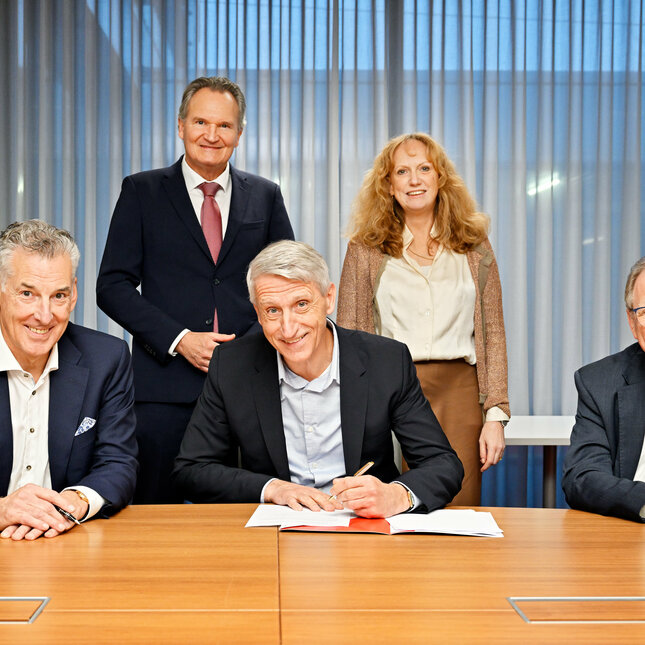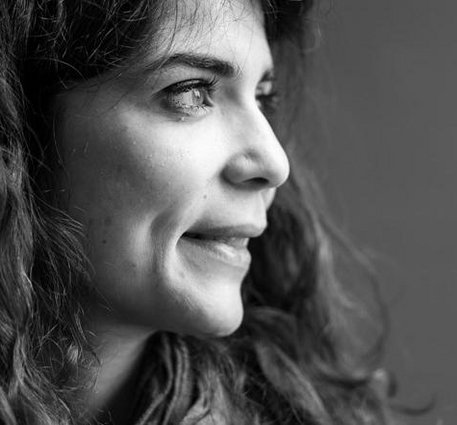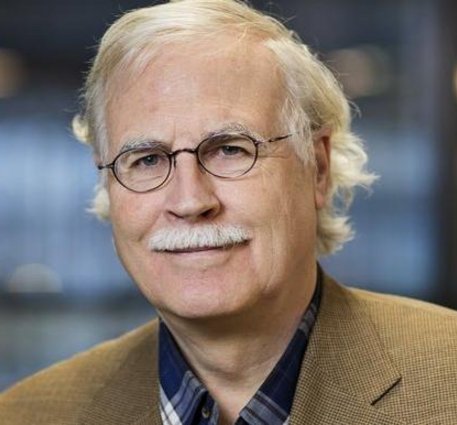
He is a TU/e Alumnus, the current and very proud CEO of Randstad - the global talent company - and our newest donor: Sander van ‘t Noordende. When you look up Randstad on LinkedIn, you’ll come across this statement: “We are committed to providing equitable opportunities to people from all backgrounds and help them remain relevant in the rapidly changing world of work.”
These words summarize Sander’s view on work and people. So, when he decided to donate to our University Fund, it was no surprise that he wanted his contribution to go towards the support of students and talent development. Both represent the third part of our motto: For Life. For the World. For the better.
From a TU/e study to Consultancy
After finishing his study in Industrial Engineering and Management Science at the TU/e, he became a consultant. Sander: “I had a hard time choosing and wanted to keep my options open. One day, a campus recruiter approached me about a position at Accenture. That sounded like the job for me: plenty of variety and ample opportunities to peek behind the scenes of many different organizations.”
Apart from a short break, Sander ended up staying at Accenture for over 32 years. In the end, there was only one more position for him to obtain: that of CEO. When that didn’t work out, he decided it was time for a change, and for a trip around the world, together with his husband. Unfortunately, after that journey Covid19 locked down the world and the job market.
Member of the board
With companies holding their breath during the first stages of the pandemic, Sanders options were limited. There was some interest in his services, expressed through headhunters, but Sander chose a different route; In 2021 he joined the supervisory board of Randstad, the global Talent company. In 2022 he became their CEO. At that time, there were no plans from either side to talk about becoming the next CEO. But as Sander describes it “One thing led to another. When my predecessor, Jacques van den Broek, announced his departure, I applied and I got the job.”
Changes and challenges
There were plenty of reasons for Sander to want this job: “Like the fact that Randstad is an iconic Dutch company which is active in 40 countries.” But there’s more, such as the serious challenges the job market faces currently. Sander: “Talent is scarce nowadays. A big part of the world’s labor force is about to retire. Soon, the remaining part will have to do more, with less people for more people than ever before. It’s a very important, if not the number one topic, on our clients’ agenda’s. They now look to us for advice on how to position themselves on the job markets, about what the proposition should be, about training, coaching, outplacement and more.”
Digitalization and ambitions
Another big shift in the HR-world is the wave of digitalization. Sander: “In online shopping, companies had a role model in Amazon, for example. For HR, there’s no frontrunner, no one to show the way. For us, there’s a position to claim in this domain.” If one thing is abundantly clear, it’s that Sander likes a good challenge. Or several at the time.
It is his ambition to make Randstad the world's most equitable and specialized talent company. And that brings us closer to the reason Sander decided to donate to the Talent Development Fund at TU/e.
People
Another important aspect that made him want to become Randstad’s CEO is the fact that it is a people’s business. For Sander, people are a subject on which his professional interests and personal views align. Sander: “When talent becomes scarce, everybody must join and take responsibility. We need specialists that help navigate us through the changes that are happening in production, distribution and many more areas. Our clients look to us to fill their job openings across the board, from forklift drivers to HR specialists.”
He continues: “But to be able to work and to reach their full potential, people need access to education and training. And that playing field is not leveled well enough. I want to contribute to providing as many people as possible with the opportunity to participate. As a CEO and as a private person.”
Politics, diversity, and profiling
Sander is a fierce proponent of diversity and inclusivity. He believes everyone with the will to participate and the drive to turn talent into a profession, should be given a chance. From that perspective, he frowns upon certain developments, such as plans to exclude foreign students from Dutch educational institutes: “Economically, it’s very unwise. We’re going to need all the people we can get to work over here. The Netherlands have always been a part of bigger and open economic systems. We can’t provide for ourselves in everything. I can imagine imposing quota or a more rigorous selection, but closing the door entirely is not a good idea.”
To Sander this kind of trend feels like “Nostalgia for a past that never was.” In his vision fighting inevitable change is a waste of time. As he puts it: “We Dutch often call ourselves progressive in many ways. But we can be quite old fashioned as well. We keep gravitating towards a preference for steady, full-time employment and solid pensions. But the world is changing and so is the way we do and view our jobs.”
Skills and knowledge change lives
He has been promoting diversity for decades. He speaks from both professional and personal experience: “Me and my husband helped a few of our cousins and nieces from Venezuela to come and study here. Over there, they have more problems than opportunities. Starting with electricity failing 50% of the time. Over here, they are now starting promising careers. I want to help more people do that. Give someone knowledge and skills and you change their lives for good.”
In 10 years
When asked what Sander would like to see achieved with his donation, his answer is: “I want to have made a profound impact on students’ lives. As to how that happens, I’ll leave that to the UFe. It could be helping talent grow or preventing talent from having to quit because of problems that are not their fault. To me, that would be an intolerable loss of talent.
He continues: “I want to give students some of the help and support I had myself. Martin Schuurmans is one of my co-donors. He received some help in his career and now pays it forward. He calls it: sharing the luck, or fortune. That to me is the right thing to do when you can. Both as a company and as a person.”

AI helps search for prostate cancer
Better diagnoses and tailor-made treatments thanks to a special project.
![[Translate to English:] [Translate to English:]](https://assets.w3.tue.nl/w/fileadmin/_processed_/f/e/csm_BJ6A4429_19f3b1c341.jpg)
Alumna Kjille Hoeben: a better entrepreneur after personal leadership training
“A great gift,” says the winner about the Marina van Damme Grant. The grant is intended for talented female alumni at one of the four…

Bart ter Haar Romenij
Professor emeritus with the energy and drive of a beginning student